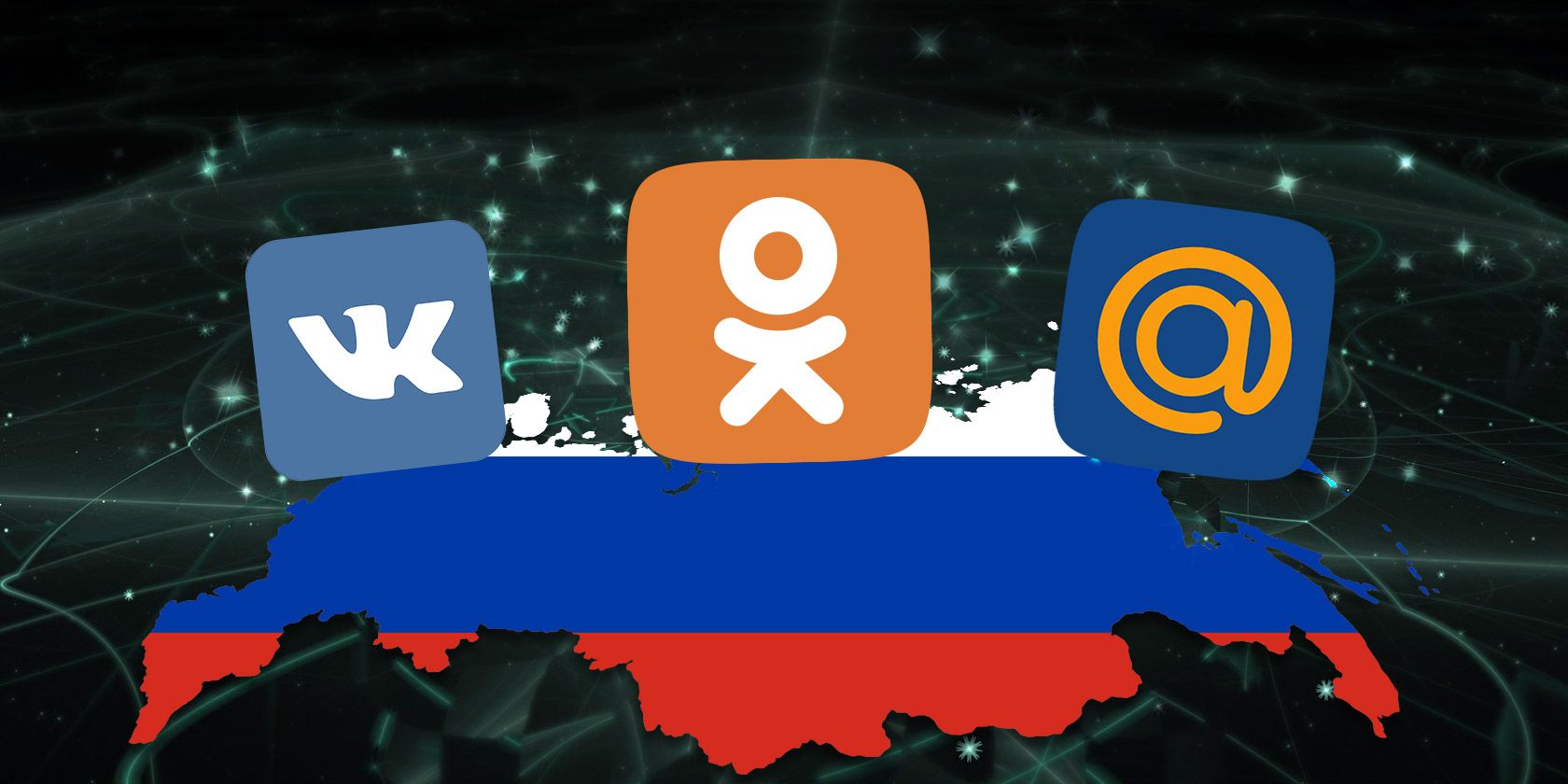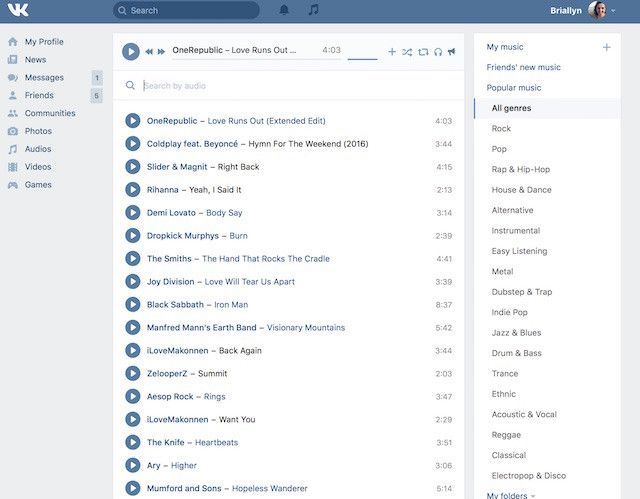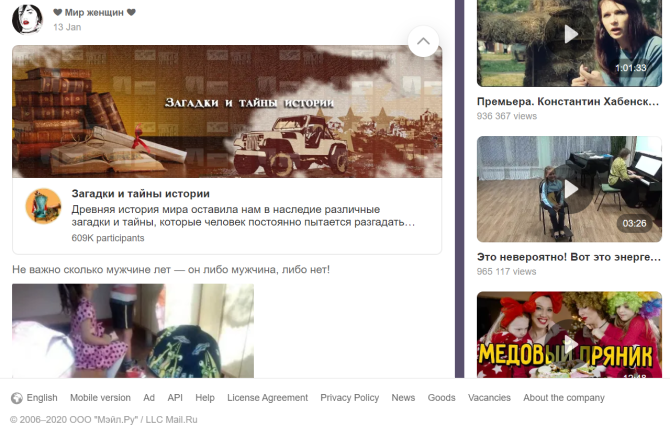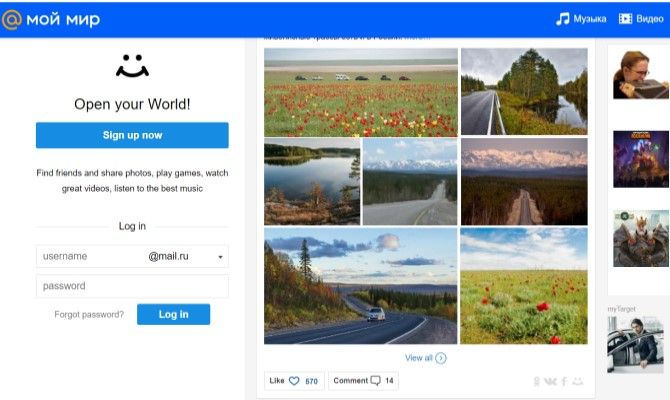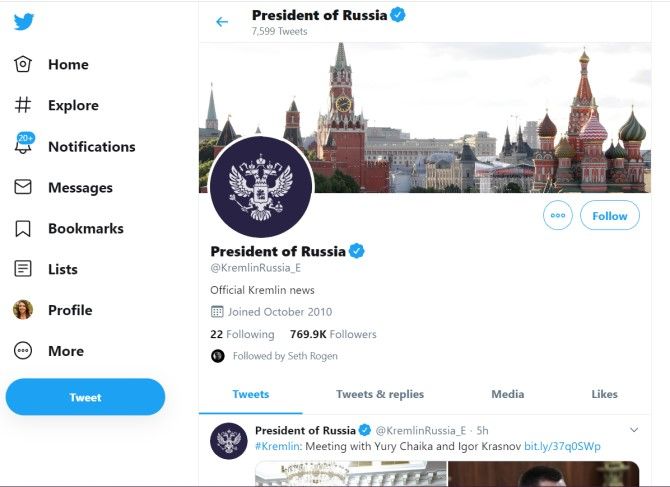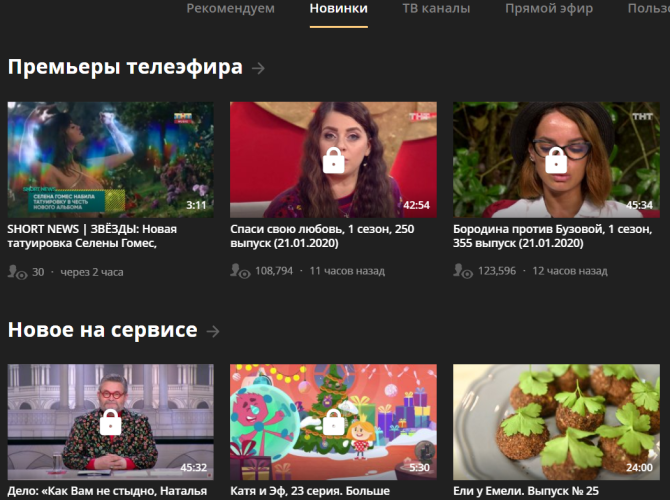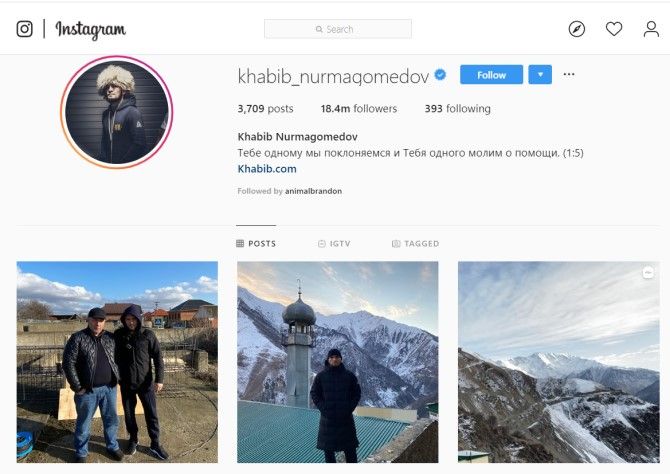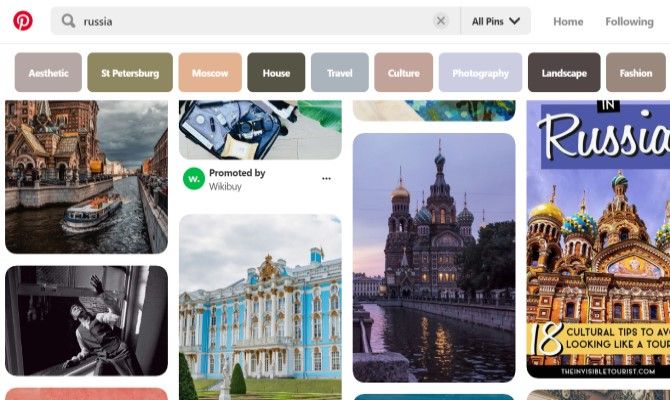Facebook, Twitter, Instagram, and YouTube dominate the social media world in most countries, but Russia (and some surrounding areas such as Kazakhstan and Ukraine) often prefer regional replacements for these platforms.
This difference in social media use is of huge importance for brands who utilize social media sites for advertising, as it can affect their marketing strategies. That aside, it's also interesting to see how online communication can differ in different parts of the world.
Here are the top Russian social networks being used today.
Note: In this list, we include both Russian social networks, as well as social media platforms that are popular in Russia.
1. VK
VK (previously known as VKontakte) is by far the most popular social media platform in Russia, with over 97 million monthly active users.
The platform is best described as a combination of Facebook and a file-sharing platform. Much like Facebook, users have a profile and can easily search for and add other users to follow their status updates, photos, and videos.
Along with these traditional functions, users can also upload video and audio files of any kind and share these resources with other users as well. In the past, this has come under scrutiny as it occasionally crossed legal boundaries. However, users must now comply with copyright laws when uploading any content.
2. OK.ru
While VK may be most popular with younger users (aged 18-34), older social media users generally prefer the social media site OK (originally Odnoklassniki, meaning "classmates"). OK.ru has over 71 million users.
Wondering what is OK.ru? Much like VK, OK allows users to create a profile, search for friends, and share status updates and images. The focus of OK is reconnecting with classmates and friends that users may have lost touch with over the years, so the search parameters are quite detailed.
You can also use the site to make voice and video calls, send messages, and give virtual gifts.
3. Moi Mir
Moi Mir ("My World") is another site like VK. It's an extension of the internet/e-mail provider mail.ru (which also owns both OK and VK) and has struggled to find its unique niche in the broader social media scene.
5.4 million people use Moi Mir each month to share images, music, and videos, as well as to play games. The Groups tab on the upper-right corner of the screen also allows you to make new friends with people who share common interests.
4. Facebook
Even though Facebook isn't the most popular social media site in Russia, its popularity has definitely begun to spread, and it now boasts over 50 million users. This isn't surprising, as Facebook is constantly changing its platform to better align with its perceived users' needs.
What's interesting is that analysts suggest that part of the reason Facebook is becoming more popular in Russia is because of business conversations. Reports suggest that in 2015, over 30 percent of business-related discussions in Russia took place on Facebook.
5. LiveJournal
LiveJournal is a blogging platform that has been around since 1999, but has since generally fallen into disuse in most of the world. This trend is far from true in Russia, however, where Russian users account for about half of the site's total traffic.
Personal blogs are a great way to develop and share your opinion and perspectives online. They allow for more thought and discussion than the sort of short messages shared on newer social media platforms.
Thankfully, LiveJournal integration is still supported by a number of online services, allowing it to maintain its important role in Russia and beyond.
6. Twitter
Twitter is another classic social media site that does quite well in Russia. While it doesn't have as many users as the other sites in this list (with approximately 13 million), it boasts the most engagement per author out of all Russian social networks.
So, even though Twitter may not be a mainstay for most Russian social media users, those who choose to use it are tweeting up a storm!
7. Rutube
Rutube is essentially Russia's answer to YouTube---a social media platform centered on video-sharing content of all types.
While it hasn't achieved the incredible reach of YouTube, Rutube has collected a wide range of content from a large number of diverse users.
Rutube hosts both licensed content and user uploads, and the vast majority of all uploads are in Russian. This high percentage of Russian content makes Rutube an incredibly valuable resource for anyone trying to learn the language.
8. Instagram
Instagram has become hugely popular in the last few years and its popularity in Russia is no exception. Instagram is rapidly moving up the social media ranks in Russia, and currently has 40 million users (58 percent of whom are female).
This shift in popularity is thanks in large part to cross-posting between Instagram and other platforms, where users can use great Instagram tools that most people don't know about to enhance and caption a photo. From there, they can post it both to Instagram and to other popular social media websites.
9. Pinterest
If you don't know what Pinterest is and how to use it, all you need to know is that it's home to aesthetically pleasing boards full of photos. The site has seen some growth over the past few years, so it's no surprise that Russian Pinners have been appearing on the site as well.
Americans make up the majority of Pinterest users. However, Russians currently hold a place in the top three countries (besides the United States) that have the highest percentage of Pinterest users.
Learning About Russian Social Networks
The success of unique social media platforms such as VK and OK in Russia and surrounding countries can be surprising to those of us who are used to Facebook, Twitter, and Instagram holding a complete monopoly over all social media communication.
There is definitely something to be said for social media sites that are targeted at a specific userbase, whether geographically (as in these examples) or based on activities. Snapchat is the best example of this, as can be seen in this list of Snapchat filters.

